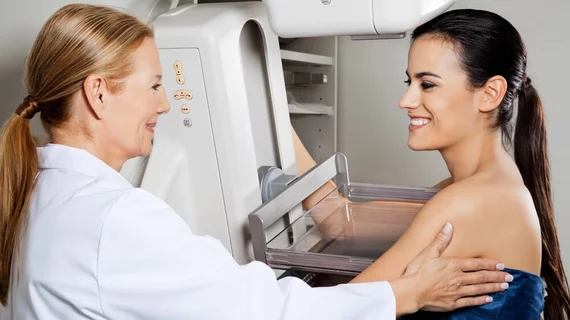Breast density reporting legislation signed into law in Illinois
Illinois Gov. Bruce Rauner has signed the state’s breast density reporting legislation into law, making it the 36th state with such a bill in place.
According to the law, HB4392, when a patient’s mammogram indicates they have dense breast tissue, providers must send a summary of the report to that patient. Text similar to the following statement must also be included:
“Your mammogram indicates you have dense breast tissue. Dense breast tissue is normal and identified on mammograms in about 50 percent of women. Dense breast tissue can make it more difficult to detect cancer on a mammogram and may be associated with an increased risk for breast cancer.
Despite these limitations, screening mammograms have been proven to save lives. Continue to have routine screening mammography whether or not additional exams are suggested for you. This information is provided to raise your awareness of the impact of breast density on cancer detection. For further information about dense breast tissue, as well as other breast cancer risk factors, contact your breast imaging health care provider.”
Back in May, the Illinois Senate passed the legislation. It was passed by the Illinois House in April.
“Over the years of working on legislation to address breast cancer, I have heard the heart-wrenching tales of how this disease has ravaged women and their families,” Illinois State Sen. John Mulroe, a sponsor of the bill, said in a May 16 statement. “If this legislation can save just one life or start just one conversation between a patient and their doctor, it will be well worth the effort.”
The legislation is effective Jan. 1, 2019.

